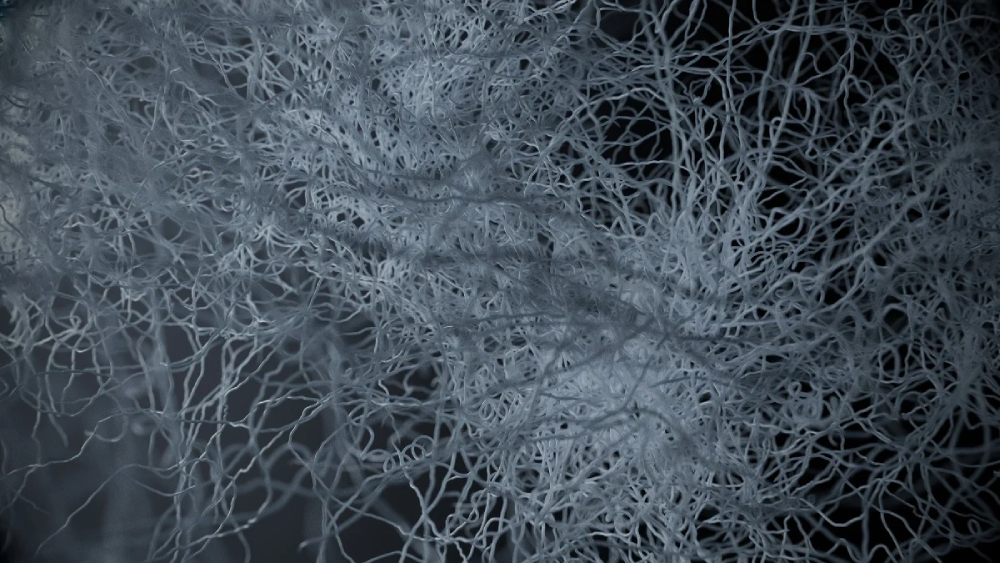
Exilva Microfibrillated Cellulose & Hydroxyethyl Cellulose: anti-settling & anti-sedimentation because of yield stress
Harrison Gallantree-Smith | November 19, 2019
Hydroxyethyl cellulose (HEC) and Exilva microfibrillated cellulose (MFC) can both be used as rheology modifiers in a variety of industries to prevent sedimentation and settling. In this article, I review the ability of the materials to give a yield stress in a waterbased system and, because of that, provide anti-settling and anti-sedimentation behavior. Tune-in on a comparison between these two rheology additives.
HEC And Exilva Thickeners compared
Hydroxyethyl cellulose (HEC) thickeners are made by chemically modifying cellulose with ethylene oxide. This modification transforms cellulose that is insoluble in water, into a water-soluble polymer. Dissolved HEC polymer thickens the water phase. Also, the polymeric molecules are able to form a reversible three-dimensional (3D) network consisting of hydrogen bonds. The hydroxyl (OH) groups of HEC thickeners can form hydrogen bonds with one another and with other components that are able to form hydrogen bonds. At low shear, a waterbased system containing a HEC thickener has a high viscosity (or even a yield stress). At high shear, the hydrogen bond network breaks down and the viscosity drops.
Exilva microfibrillated cellulose is a waterbased suspension consisting of long and thin cellulose fibers, called fibrils. At low shear, the fibrils entangle with one another, thus forming a strong three-dimensional network with added interactions via hydrogen-bonding.

Figure 1. A 3D visualisation of the fibrils of Exilva microfibrillated cellulose.
Both Exilva microfibrillated cellulose and hydroxyethyl cellulose can give a yield stress in waterbased systems and both additives give a shear-thinning rheology.
Interested in the concept of yield stress and anti-settling? Read the details here.
Hydroxyethyl cellulose and Exilva microfibrillated cellulose: anti-sedimentation and anti-settling behavior in a TiO2 dispersion
The viscoelastic properties of paints and coatings can be improved by adding products like HEC and Exilva microfibrillated cellulose. By transferring the yield stress properties of Exilva MFC or HEC additives to the paint, you obtain stability against sedimentation and settling. The composition of waterbased titanium dioxide (TiO2) pigment dispersions (model formulations), containing a HEC thickener and Exilva MFC respectively, is given in Table 1.
Table 1. Composition of the titanium dioxide pigment dispersions. The amounts are in grams.
|
Ingredient |
Function |
Reference |
HEC Thickener |
Exilva MFC |
|
Water |
Carrier |
110.4 |
107.4 |
80.4 |
|
Disperbyk-190 |
Dispersant |
63 |
63 |
63 |
|
BYK-024 |
Defoamer |
6 |
6 |
6 |
|
Rheology additive |
Prevent sedimentation |
- |
3.0 |
30.0 |
|
Kronos 2310 |
White TiO2 pigment |
420 |
420 |
420 |
|
Grotan BA 21 |
Preservative |
0.6 |
0.6 |
0.6 |
|
Total |
|
600 |
600 |
600 |
The HEC product is a commercial state-of-the-art HEC thickener that is used to adjust the rheology of waterbased paints. The HEC thickener is supplied as an easy-to-dissolve powder. The microfibrillated cellulose rheology additive, Exilva F 01-V, is supplied as a suspension of 10 % of MFC in water.
Table 2. Yield stress values of the TiO2 pigment dispersions containing 0.5 % active rheology additive.
|
Product |
Type of Additive |
Yield Stress (Pa) |
|
Reference |
No Additive |
0.43 |
|
Exilva F 01-V |
Microfibrillated Cellulose |
2.90 |
|
Commercial HEC Thickener |
Watersoluble Modified Cellulose |
1.64 |
Table 2 shows the yield stress values of the TiO2 pigment dispersions containing Exilva F 01-V and the HEC thickener. Exilva gives a higher yield stress compared to the HEC product at the same active dosage. The substantial difference in yield stress implies that less Exilva MFC can be used, compared to HEC to obtain the same degree of stability against sedimentation and settling.
Both technologies are based on a reversible three-dimensional (3D) network that is built-up and broken down, depending on the amount of shear applied. The high efficiency of the Exilva MFC product results from the entanglements of the cellulose fibrils, giving a strong physical network, seen in Figure 1. A higher yield stress gives better anti-sedimentation and anti-settling properties. Below, i have put together an explanation of similarities and differences of the two rheology technologies:
| HEC (hydroxyethyl cellulose) |
EXILVA (cellulose fibrils) |
| SIMILARITIES | |
| Forms strong and reversible 3D network | |
| Gives strong shear-thinning behaviour | |
| Provides yield stress | |
| DIFFERENCES | |
| Water soluble modified cellulose polymer | Insoluble cellulose fibrils |
| Based on hydrogen bonding | Based on entanglements |
| Supplied as powder | Supplied as suspension in water |
| Sensitive towards microorganisms | Resistant against microorganisms |
| Partly bio-based | Completely bio-based |
How can I add Exilva microfibrillated cellulose to test yield stress and anti-sedimentation/anti-settling?
Exilva microfibrillated cellulose is used in a wide range of applications. For paint producers, the optimal moment to add MFC is in the grinding step. When ensuring dispersion, by utilizing the strong shear forces in the grinding step, you will succeed in incorporating the yield stress properties of Exilva into your paint. For other application areas, in which hydroxyethyl cellulose thickeners are used today, the important thing to remember is that Exilva microfibrillated cellulose should be dispersed by applying substantial shear forces.
Would you like to know more on proper dispersion of Exilva microfibrillated cellulose? Read our dispersion article here.
Written by:
Harrison Gallantree-Smith
Harrison Gallantree-Smith has been working as a researcher with Exilva, specifically with coatings, construction and agchem applications since 2017. He has established an extensive knowledge of each of these application areas and how Exilva can benefit them. Harrison has also worked closely with customers on industrial partner projects and with research institutes to give guidance and advice with Exilva. Harrison has a Masters in Chemistry from UCL (University College London) and a PhD in Organic Synthesis from NMBU (Norwegian University of Life Sciences).
